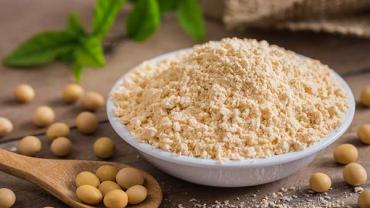
For decades, health practitioners have advocated for essential fatty acid (specifically, docosahexaenoic acid (DHA)) supplementation during pregnancy to support neurological development in the fetus and throughout childhood. More recently, choline has been added to the list of micronutrients that are highly influential in neurological development and therefore, should be a prioritized nutrient during pregnancy and lactation.
Choline is a precursor to various metabolites involved in structural and regulatory roles including betaine (a methyl donor), acetylcholine (a neurotransmitter), and phosphatidylcholine (a main component of cell membranes). Endogenous choline is insufficient to meet the physiological demands of the body, making it an essential nutrient to consume. Egg yolks are the most concentrated source of choline. Unfortunately, most individual’s diets provide inadequate amounts of choline, leading to widespread deficiency among the population.
One population, particularly at risk for deficiency, are pregnant and lactating women. Choline requirements are highest in this population as evidenced by a noticeable increase in plasma and serum choline concentrations in pregnant women. But not only does a deficiency affect the woman’s structural and biological requirements; it also impacts her unborn child. Choline readily passes through the placental barrier and the concentration of choline in amniotic fluid is 10-fold greater than that present in maternal blood, and 6 to7 fold higher in the fetus and newborn compared to their adult years.
Organ and muscle dysfunction appear to be the most prominent sign of choline deficiency among adults. In randomized trials, 42 days of a choline-restrictive diet led to organ dysfunction evidenced by either a “…five-fold increase of serum creatine phosphokinase (CPK) activity; a 1.5-fold increase in serum activity of aspartate transaminase, alanine transaminase, γ-glutamyl transpeptidase, or lactic dehydrogenase; and/or a 28% increase in liver fat content (assessed by magnetic resonance imaging) that was resolved after repletion of dietary choline.”
In the same report, it was found that female sex hormones play a role in developing a choline deficiency since 80 percent of postmenopausal women developed signs of choline deficiency compared to only 44 percent of premenopausal women. Further investigation indicated that polymorphisms in the PEMT gene, which carries an estrogen response element that promotes the binding of the estrogen receptor to this gene may be implicated in the prevalence of choline deficiencies. The role of estrogen in protecting women from a choline deficiency was confirmed in other randomized controlled studies in which women receiving estrogen were less susceptible to the organ damage prompted by a choline deficiency. The PEMT gene encodes for an enzyme that can form a choline moiety de novo. The estrogen surges during pregnancy induce this gene, ensuring choline availability to the fetus.
Even if the PEMT gene is operating at full capacity, dietary choline is necessary to support de novo synthesis. Rat models have shown pregnancy to be a state that depletes the liver of choline stores and that maternal dietary choline directly impacts fetal brain development. More specifically, a choline deficiency increased the prevalence of neural tube defects and led to low performance on cognitive tests in children. In fact, other studies have reported that “a woman who consumes a diet low in choline has a 4-fold increased risk of having an infant with a neural tube defect...” Fetal brains had lower numbers of radial glial cells, intermediate progenitor cells, and upper layer cortical neurons when their mothers lacked choline.
Animal studies also suggest that adequate choline provision during pregnancy could protect against memory impairment common with aging. Aging rodents that had been exposed to supplemental choline in utero did not show the same decline in memory as their aging counterparts that were not exposed to extra choline. Human studies have not yet been conducted to determine whether in utero choline concentrations are associated with dementia and other forms of memory decline in older age; however, studies do suggest that the exposure to adequate choline during fetal development has long-lasting impact on learning and memory.
Since pregnancy and lactation are conditions that draw choline out of the maternal blood in order to provide for the fetus or infant, supplementation of this important nutrient is essential for those who may become pregnant. It will not only ensure optimal organ health in the mother, but it will also ensure the developing child has all the appropriate nutrients needed to ensure a robust neurological system both in structure and function.